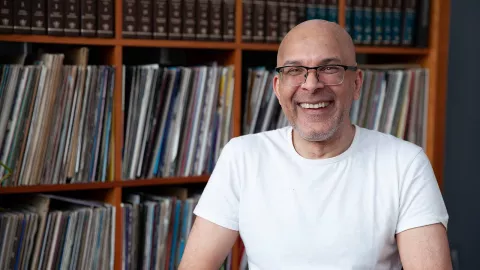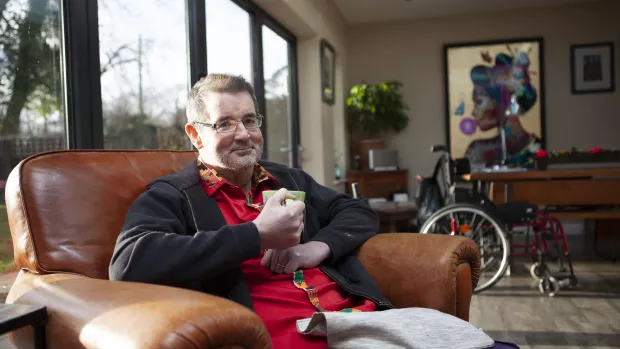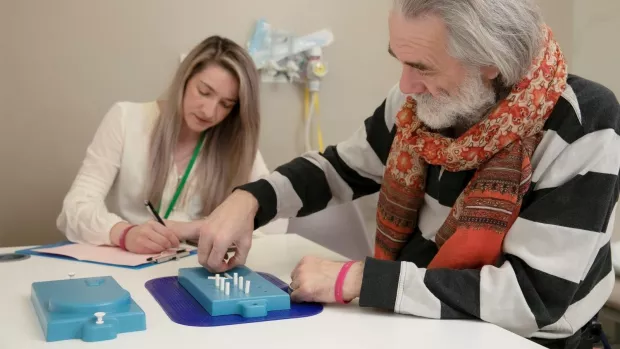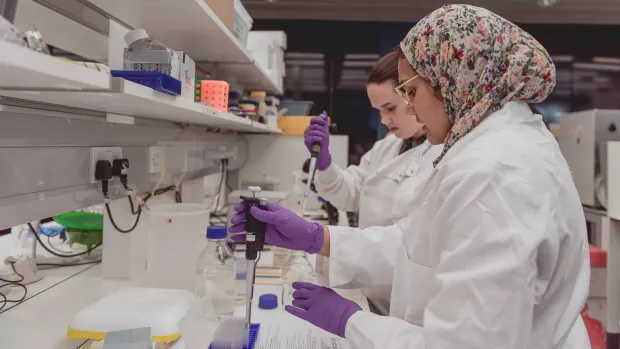
Research has achieved so much since my MS diagnosis
I was diagnosed with relapsing MS when I was 21, although I had my first symptoms when I was 19. After about 20 years it became secondary progressive.
For 17 years, MS wasn’t really an issue for me. I was walking and cycling and stuff. Then in 3 years a lot changed. The hardest thing was giving up work. I had a business and I was quite good at it. I enjoyed being sociable and interacting with customers. I gave up because of my heath. That was my biggest challenge, physical or mental. It was very difficult, but I always look for inspiration.
We can still enjoy life with MS
Everyone can do something. I’ve actually done more things than I would have done if I hadn’t had MS. I’ve been sailing to Croatia and Turkey with a crew of other people with MS, with the organisation Oceans for Hope. I’ve volunteered loads for different charities, including for Asian MS with the MS Society. And I’ve done lots of studying – things like interior design. I redid my flat. I still keep active in society even though I don’t work anymore. My time is quite full.
I’ve got two nieces, Ophelia and Tilly. When they come round I love to hide from them so they have to find me. We get on very well – we’re on the same intellectual level! We like to be very silly.
I’ve benefitted from MS treatment – but we need more
When I was diagnosed, there were no disease modifying therapies (DMTs). Now there are so many medications that can help.
I eventually got put on a DMT and I don’t know what my life would have been like without that drug.
Most of the drugs are for relapsing MS though. That’s scary, because I can feel myself getting more ill, very subtly. If I see somebody after six months they tell me that six months ago things weren’t so hard for me to do. But it’s happening so slowly that I don’t actually notice.
Hope for progressive MS
But the fact there’s so many treatments now for relapsing MS can give people hope for the future. Those with progressive MS haven’t been put on the backburner. So much time and money is being put into research into more treatments. And the advances for relapsing MS are living proof it works.
To someone newly diagnosed with MS I’d say there are so many medications that can help. And I’d also say life’s not over. It’s just different.




